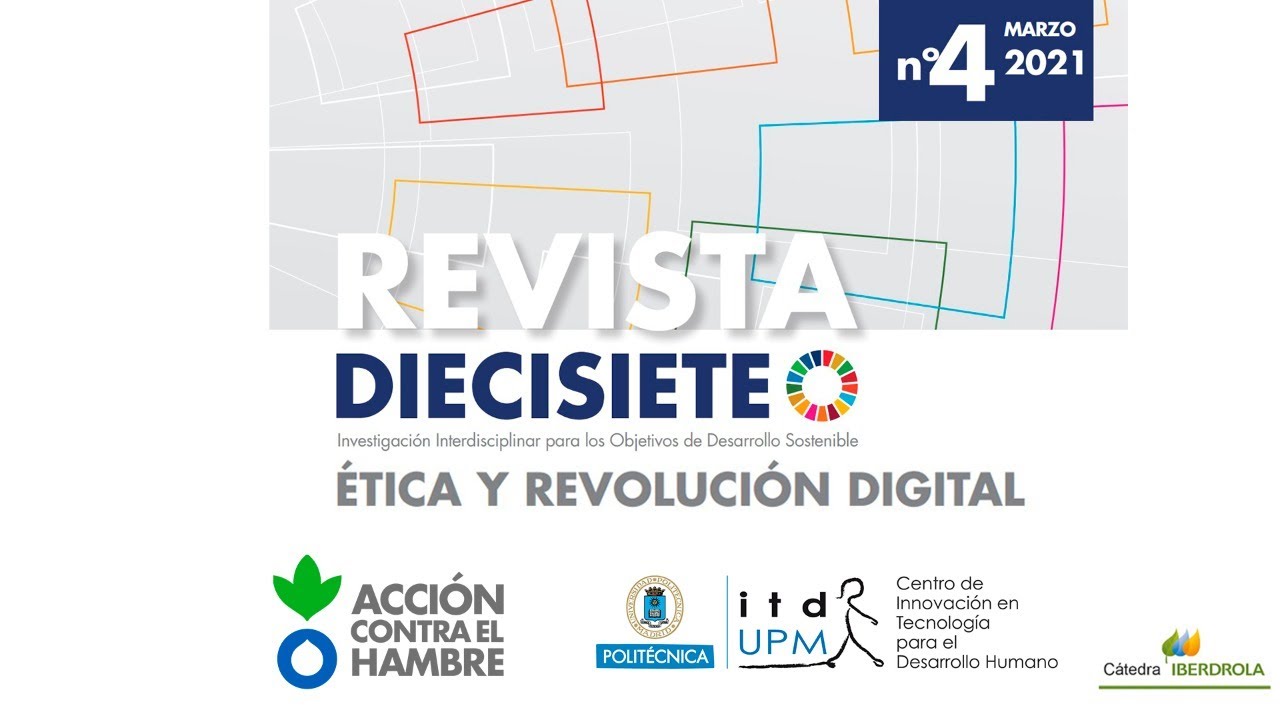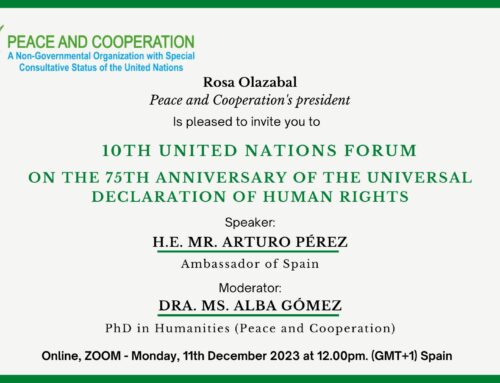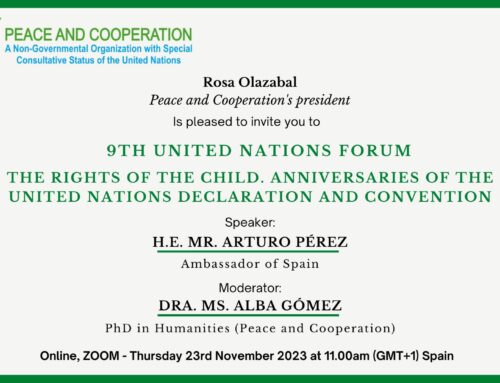Carlos Mataix, professor at the Polytechnic University of Madrid, introduced the presentation of the 4th monographic of Diecisiete magazine, from which he is the director. This issue of the magazine raises questions related to different areas related to ethics in the digital revolution. From a multidisciplinary approach, very different and necessary subjects are approached within the magazine.
The different experts and authors which are present in this issue of the magazine, focus their analysis on very different areas, such as ethics and law in the digital revolution, the environmental consequences of digitalization, the integration of the 2030 Agenda in the digital process, the digitalization in foreign policy, in the area of education, of health, of NGOs or even in the world of engineering.
The first part of the meeting was moderated by Jesús Salgado, publisher of the magazine and professor of the UPM. This first encounter included the participation of Txetsu Ausin, director of the Group of applied Ethics in the CSIC and Margarita Robles, titular professor of International Public Law in the UGR. These two experts are the authors of the article “Panorama”, within this issue of the magazine, where different issues are addressed related to digitalization and the ethical parameters of the technological revolution. One of these problems is the lack of ethical consideration in the process of digitalization and the oversaturation of digitalization. Andrés Ortega, director of the Ideas Observatory and Senior Associate Researcher of the Elcano Royal Institute, also emphasized the need for integrating into the digitalization process development policies, at the same time as the need of digital literacy for the population.
Celia Fernández, professor in the UPM and publisher of this issue, moderated the second part of the encounter where matters related to disruptions in digitalization were addressed. Ángel Gómez, coronel of the Spanish Air Force and geopolitical analyst in the Ministry of Defence, presented new ethical approaches and the need for regulation in the process of digitalization. From an educational point of view, Ángeles Manjarres, Researcher at the Artificial Intelligence Department at the UNED, raised some of the issues that exist in the different contexts of low-income countries and educational inequality.
Victor Giménez, director of digital transformation at Acción contra el Hambre, also stressed the need for a cultural change for digital innovation and how his organization optimizes its work as well as aligning with digitization, such as time automation or predictive models, and this way promoting the goal of ending hunger. On the other hand, María Luz Cruz Aparicio, head of innovation management at Iberdrola, explained how digitization is used in renewable energy projects such as photovoltaic plants, or the area of artificial intelligence for the electricity grid or plant maintenance.
Carolina Sánchez Caminal, Student Intern.
Peace and Cooperation






